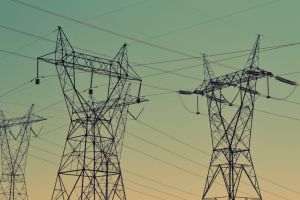The volatility of electricity prices in Central and Eastern Europe will also be discussed by Eurelectric members, said in a press conference, Corneliu Bodea, the president of the Romanian Energy Center, who requested this from Kristian Ruby, the general secretary of the federation representing the European electricity industry.
Corneliu Bodea stated: "In recent months, there is more and more talk about the isolation of the South-Eastern European market, compared to the western networks. Romania, Greece and Bulgaria, as a result of a market mechanism, but also of some physical links, of interconnection, it seems that they are not the beneficiaries of a high competitiveness in the field of energy, which leads to high prices for electricity. We discussed this issue including with the Ministry of Energy and opened the topic at Eurelectric. We will also organize a meeting with the partners from Austria and Hungary sometime at the beginning of next year, to discuss this topic at the Eurelectric level, together with Greece and Bulgaria. We are only at the stage where we have concretely proposed this topic, we have talked with the general secretary of Eurelectric in Brussels about it, and we are waiting for the organization of a meeting in the first quarter of next year in which we can involve the associations from the interested countries. From the information we have it seems that it is also an algorithm problem and it is good that we will discuss this at the Eurelectric level. The problem of these electricity prices in Eastern Europe was brought to the attention of the Council and the European Commission by Greece, but the energy specialists are not in these institutions, but in Eurelectric. Sooner or later, a path that we, as specialists, could outline will be able to serve through Eurelectric's influence as a solution for politicians. I say that it is good that Greece raised this issue. I am sorry that we, CRE, or the Romanian state did not raise it, because the problem of these prices is a concrete, real one. The fact that he stood up will lead to certain results. The problem is one caused by the physical connections, the interconnection, but also the calculation algorithm. It will not be very simple to solve this problem, because the interests of the big electricity producing companies are very high, but our interests are also equal. Look at what is happening in Ukraine, what is being announced for this winter especially as the attacks of the Russian Federation on the Ukrainian energy system continue, especially in terms of production capacities and transmission and distribution networks".
Eurelectric is the federation that represents the European electricity industry, with members from 32 countries, bringing together over 3,500 companies and 1,000 experts. The organization supports energy policies that accelerate the transition to a green economy and promote electrification and digitalisation as solutions for decarbonisation, stability and flexibility of the European energy system.
We mention that two days ago Sebastian Burduja, the Minister of Energy, stated that the request of Greece, Romania and Bulgaria regarding high energy prices in Eastern Europe will be debated by the Council of Ministers, on October 15, in Luxembourg.
Mr. Burduja specified that three countries fully comply with European rules, including those related to decarbonization and the green transition, and therefore demand "equal rights", in particular "access to energy at competitive prices comparable to those of other EU member states ".
The Minister of Energy also identified two key factors contributing to the current situation. The first is the lack of energy interconnections in Central Europe, especially in Austria and Slovakia, which prevents the flow of cheaper Western energy to Eastern Europe. The second is the increased demand for energy from Moldova and Ukraine, which is driving up prices in the region.
Sebastian Burduja added: "In the medium and long term, the best solution is to develop interconnection capacity in countries that have not yet met their commitments. Our aim is to put fair and constructive pressure on Austria, Slovakia and possibly other countries in the Energy Union to strengthen their interconnection capabilities. It is possible that sometimes energy from the East is cheaper than that from the West, but it cannot flow in the opposite direction".
In a joint letter addressed to the European Commission by the authorities of Romania, Bulgaria and Greece, it is proposed to impose higher taxes on electricity producers with the lowest production costs, as well as on traders. This measure would help to solve the problem of windfalls made by producers due to current price conditions that do not reflect real production costs. Revenue from this tax could be redistributed to reduce the burden on consumers and to help stabilize the market in the short term.
We remind you that the first alarm signal regarding the situation of the energy market in Eastern Europe was sounded at the beginning of September by the Greek Prime Minister Kyriakos Mitsotakis, who showed the European Commission that the increase in electricity prices in Central and Eastern Europe is too large and is influenced by Russian attacks on Ukraine's energy infrastructure. The head of government in Athens called on the European Commission to set up a bloc-level regulator with powers to inspect EU energy markets and urged the EU executive to support cross-border infrastructure projects to transfer energy power between countries.



























































